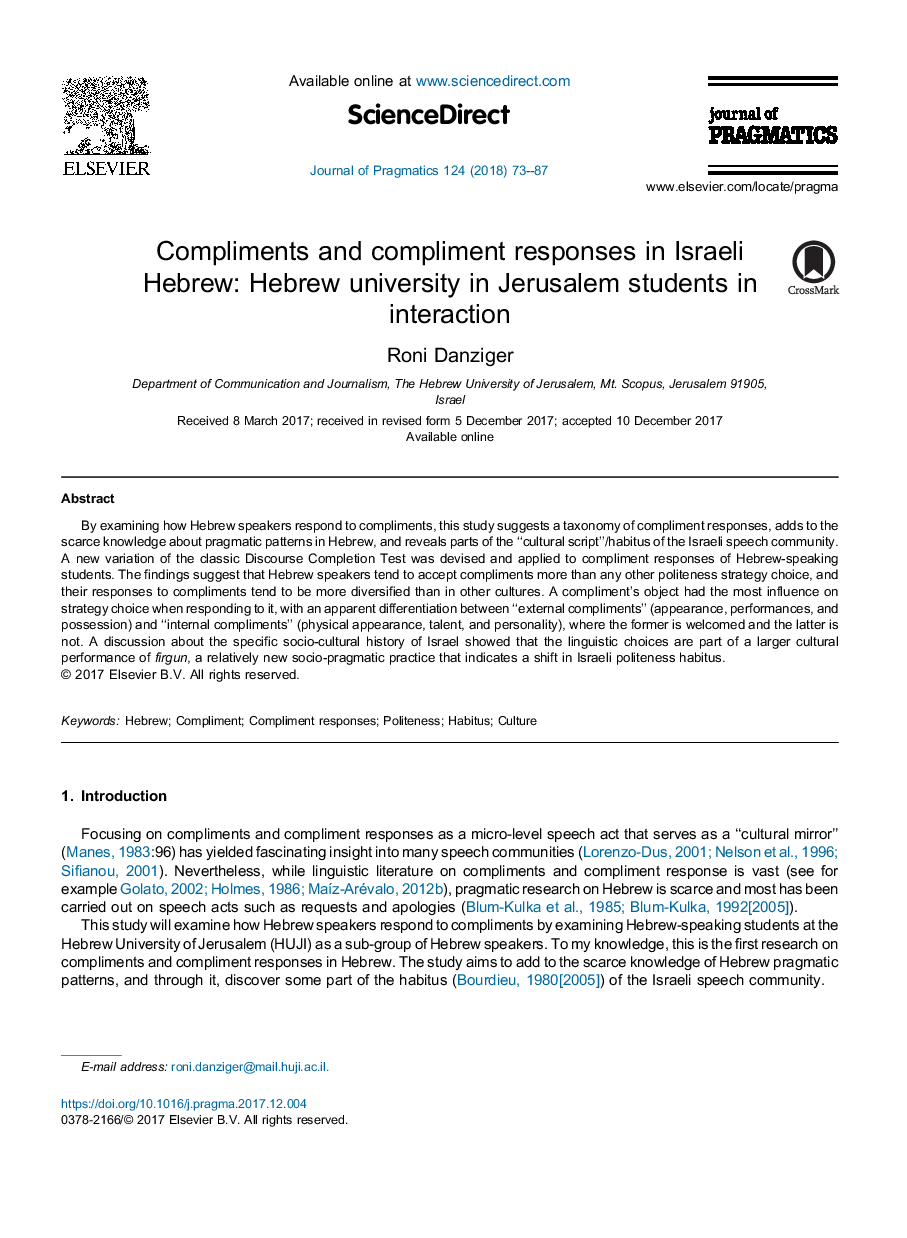| Article ID | Journal | Published Year | Pages | File Type |
|---|---|---|---|---|
| 7297601 | Journal of Pragmatics | 2018 | 15 Pages |
Abstract
By examining how Hebrew speakers respond to compliments, this study suggests a taxonomy of compliment responses, adds to the scarce knowledge about pragmatic patterns in Hebrew, and reveals parts of the “cultural script”/habitus of the Israeli speech community. A new variation of the classic Discourse Completion Test was devised and applied to compliment responses of Hebrew-speaking students. The findings suggest that Hebrew speakers tend to accept compliments more than any other politeness strategy choice, and their responses to compliments tend to be more diversified than in other cultures. A compliment's object had the most influence on strategy choice when responding to it, with an apparent differentiation between “external compliments” (appearance, performances, and possession) and “internal compliments” (physical appearance, talent, and personality), where the former is welcomed and the latter is not. A discussion about the specific socio-cultural history of Israel showed that the linguistic choices are part of a larger cultural performance of firgun, a relatively new socio-pragmatic practice that indicates a shift in Israeli politeness habitus.
Related Topics
Social Sciences and Humanities
Arts and Humanities
Language and Linguistics
Authors
Roni Danziger,
